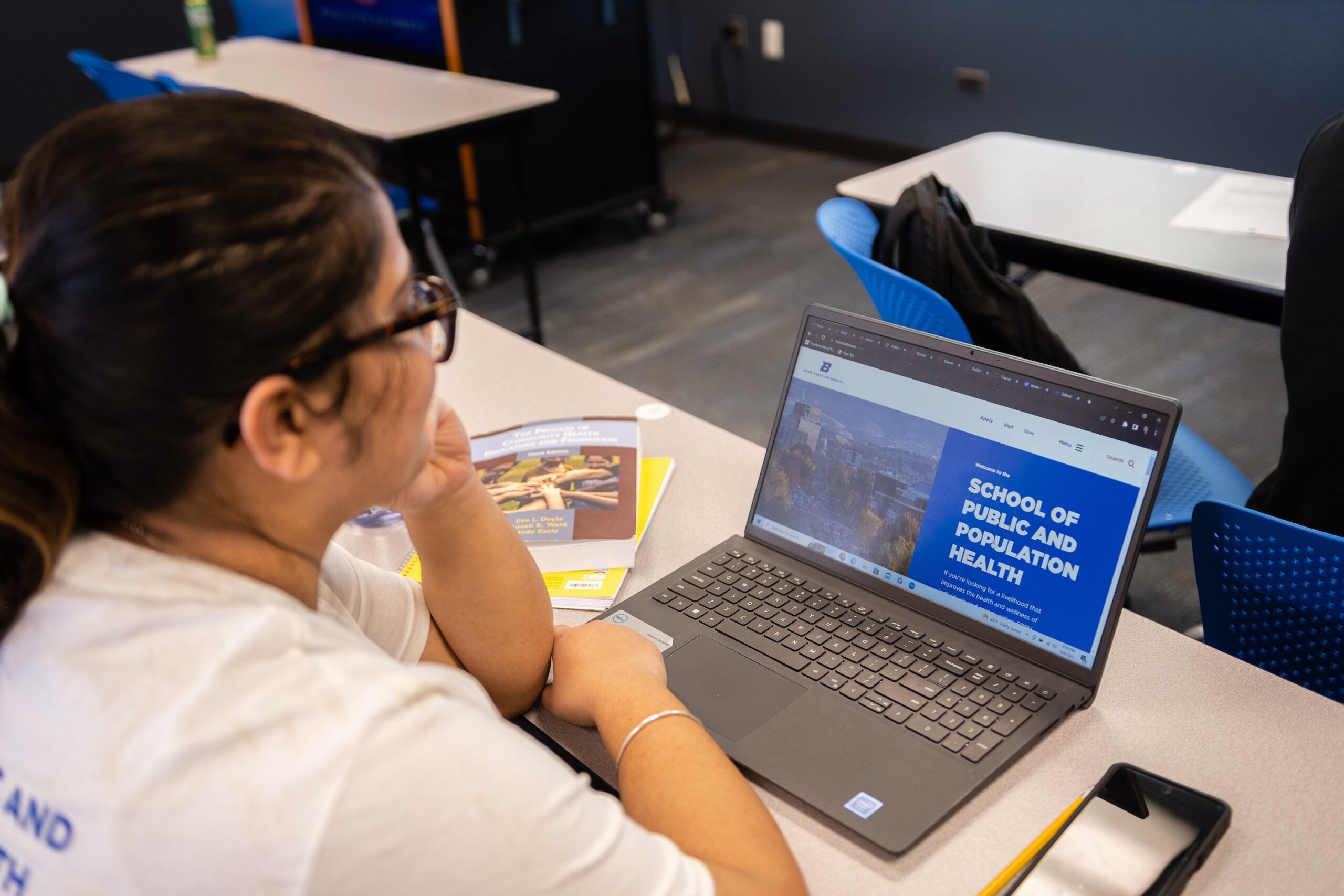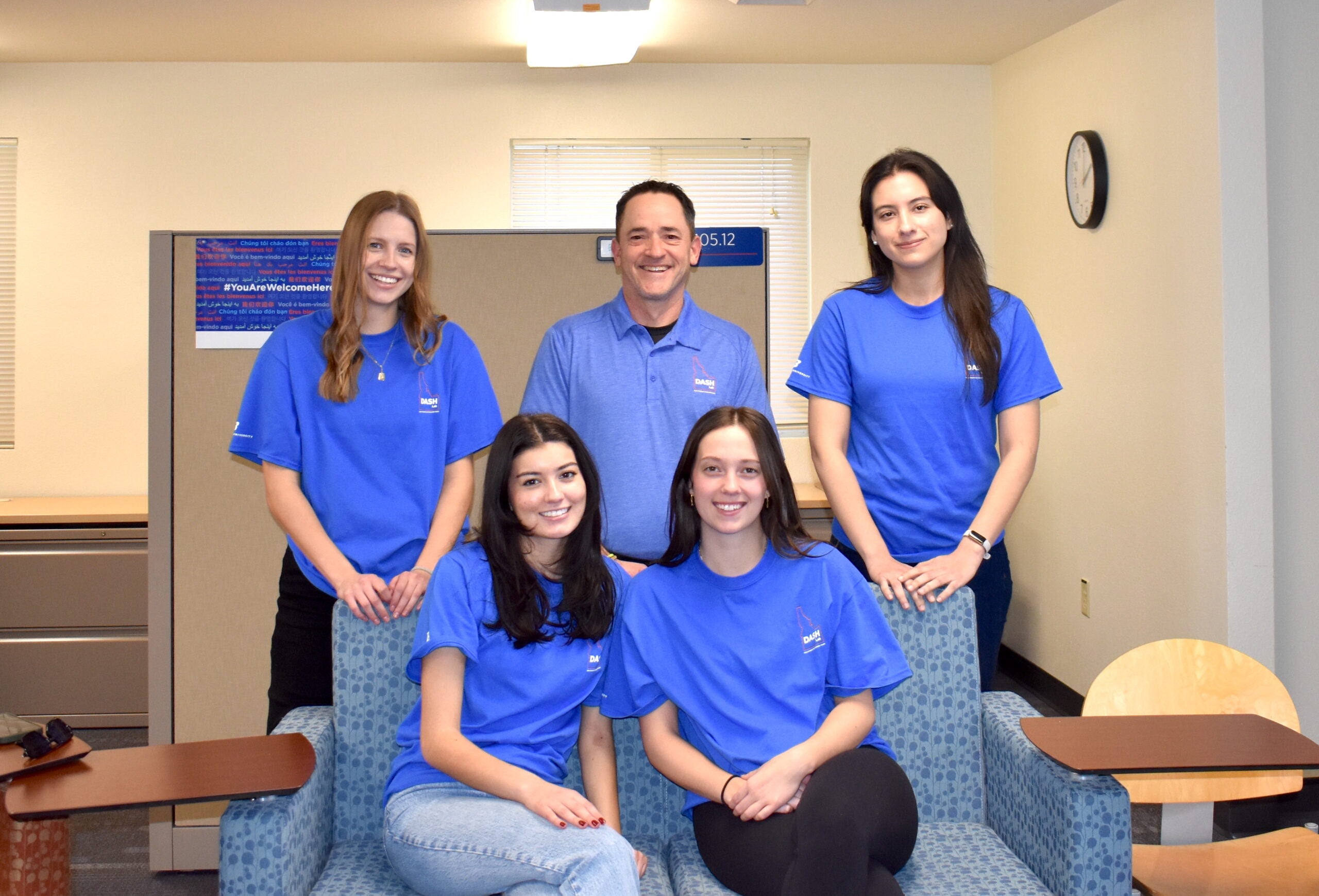
Boise State’s School of Public and Population Health will offer a new Bachelor of Science in Health Data Analytics degree starting fall 2024.
Born out of the need for innovative and future-facing health data programming, the new degree will prepare graduates to meet the growing need for health data analysts. At the intersection of health and technology, it is a need that leaders in local health systems say is critical to improving patient outcomes, enhancing care management and more.
Jaime Sand, the school’s associate director of student engagement and impact, often tells students who are considering a career in health data analytics: “We have more data than we know what to do with.” Just ten years ago, she said, health data professionals largely focused on adopting electronic health records – and now with more widespread data usage and application, the sky’s the limit.
“With the health data analytics program, we can introduce students to the concepts of health informatics while preparing them to work with the data being used to drive decisions for patient care and population health management,” she added.
The school formerly offered an emphasis in health informatics and information management for students interested in health data. Traditionally, health informatics education focused on healthcare settings primarily within hospitals, Sand explained. But the use of health data and information expands widely beyond hospital walls and the school aims to meet that expansion.
“The growing need for data literacy in healthcare, public health and collaborative industries highlighted an opportunity for us to address this need using the unique makeup and structure of our school and expertise of our faculty,” she said.
Alongside a newly updated slate of courses, this interdisciplinary program includes a nine-month, hands-on learning experience in the Data Analytics for Statewide Health Collaborative Lab led by Clinical Associate Professor Kirk Ketelsen.

Students in the lab work on a project sponsored by community health partners and put theory into practice by assessing large data sets – gaining even more exposure to the realities of health data analyst jobs. Closing in on its first year, the lab partnered with the Idaho Department of Health and Welfare to dive into rural suicide data. The group will present findings at Boise State’s undergraduate research and graduate student showcases.
“This is what healthcare systems are looking for,” Sand said. “Graduates who are prepared to explore, analyze, communicate and reason with data to assist the organization in making data-driven decisions.”
The new degree, Ketelsen says, will prepare students in both the technical and soft skills needed to acquire jobs in health data analytics across many health fields.
“In addition to health sector-specific knowledge like medical terminology and experience with electronic health records, students will gain knowledge of data science principles and statistics, develop proficiency with data wrangling and warehousing, data transformation and become familiar with various software packages like Excel, R and SQL,” Ketelsen said. “Students also will gain important soft skills such as effective written and verbal communication, time management and creative thinking.”
The Bureau of Labor Statistics estimates data scientist jobs will grow 35% between 2022 and 2032. With this new program, Sand and Ketelsen see future graduates well-prepared for jobs that will impact their communities.
“I hope they feel confident in their skills of data collection, analysis and visualization when communicating with stakeholders,” Sand said. “And I hope they recognize that by utilizing these skills they will have a significant impact on patient and population health outcomes.”